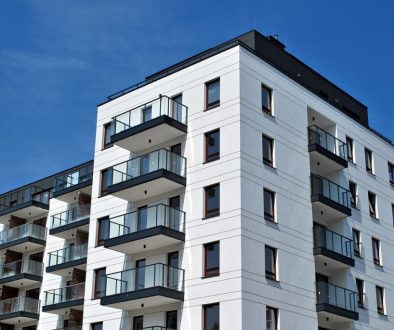When to Upgrade Your Commercial Real Estate HVAC Systems
When considering when to upgrade your commercial real estate HVAC systems, learn the signs, benefits, and solutions that can enhance energy efficiency and comfort.
When to Upgrade Your Commercial Real Estate HVAC Systems
Upgrading your commercial real estate HVAC systems can be a daunting task, but it is crucial for maintaining a comfortable and efficient environment. This post will delve into the key indicators that suggest it’s time for an upgrade, the benefits of new systems, and practical solutions available in the market today. Whether you manage a small office or a large commercial space, understanding when to make this significant investment is essential for long-term savings and occupant satisfaction.
Introduction
The HVAC system is the backbone of any commercial property, directly impacting air quality, occupant comfort, and energy consumption. As the seasons change, so do the demands placed on these systems. An outdated or malfunctioning HVAC can lead to increased operational costs, health risks, and reduced productivity among employees. Therefore, it is vital to recognize when an upgrade is necessary. This article will provide insights into how to evaluate your current HVAC system, discuss the indicators for an upgrade, and explore the latest technologies available to enhance efficiency and performance.
Signs of an Aging HVAC System
- Decreased Efficiency: One of the first signs that your HVAC system may need an upgrade is a noticeable decrease in efficiency. If you find that your energy bills are rising without any changes in usage, it could be due to an aging system that is working harder to maintain comfortable temperatures. According to the U.S. Department of Energy, HVAC systems should be replaced every 10-15 years to ensure optimal performance.
- Frequent Repairs: Are you frequently calling in technicians to fix your HVAC system? An uptick in repair needs often indicates that the system is on its last legs. If the repair costs amount to more than 50% of a new unit’s price, it is advisable to consider an upgrade.
- Inconsistent Temperatures: If some areas of your commercial building are too hot or too cold, it suggests that your HVAC system cannot effectively distribute air throughout the space. This inconsistency can lead to discomfort among employees and clients, ultimately affecting productivity.
- Noisy Operation: Unusual noises such as banging, clanking, or hissing can signify underlying issues within the HVAC system. While some sounds may simply be a result of loose parts, others may indicate significant mechanical problems that could warrant an upgrade.
- Poor Air Quality: An aging HVAC unit may struggle to filter out pollutants and allergens, leading to poor indoor air quality. Symptoms like increased respiratory issues among occupants can arise, prompting the need for a more efficient system capable of providing cleaner air.
Benefits of Upgrading Your HVAC System
- Energy Efficiency: New HVAC systems are designed with advanced technology that significantly increases energy efficiency. As a result, businesses can save a substantial amount on energy bills. The U.S. Environmental Protection Agency estimates that modern systems can be 20-40% more efficient than older models.
- Improved Comfort: Upgrading your HVAC system can enhance the comfort of your commercial space. Modern systems offer better temperature control and humidity regulation, ensuring that all areas of your property maintain consistent and comfortable conditions.
- Enhanced Air Quality: New HVAC systems often include advanced filtration technologies that help remove dust, allergens, and pollutants from the air. This improvement in indoor air quality can lead to better health outcomes for employees and customers alike.
- Smart Technology Integration: Many of the latest HVAC systems come equipped with smart technology that allows for remote monitoring and control. Property managers can adjust temperatures, schedules, and settings from a smartphone or computer, enhancing convenience and operational efficiency.
- Increased Property Value: A modern HVAC system is an attractive feature for potential buyers or tenants. Upgrading can significantly boost the value of your commercial property, making it more appealing in a competitive real estate market.
Evaluating Your Current HVAC System
Before deciding to upgrade, it’s important to conduct a thorough evaluation of your current HVAC system. Here are some steps to consider:
- Age of the System: Determine how old your HVAC system is. As mentioned, systems over 10-15 years old are prime candidates for an upgrade.
- Maintenance History: Review the maintenance records of your HVAC system. A well-maintained system typically has a longer lifespan. Frequent breakdowns and repairs may indicate the need for a replacement.
- System Type: Analyze the type of system you currently use. Some systems, such as those using R-22 refrigerant, are being phased out due to environmental regulations, making an upgrade necessary for compliance.
- Energy Bills: Track your energy bills over time. A consistent rise in costs without significant changes in usage can be a red flag indicating that your HVAC system is no longer efficient.
- Comfort Levels: Survey your employees or tenants regarding their comfort levels. If multiple individuals report discomfort due to temperature fluctuations or air quality, it may be time to consider an upgrade.
Exploring Upgrading Solutions
Once you’ve evaluated your current system and determined it’s time for an upgrade, it’s time to explore your options. Here are some solutions to consider:
- High-Efficiency HVAC Units: Investing in high-efficiency HVAC units can significantly reduce energy consumption. Look for units with a high Seasonal Energy Efficiency Ratio (SEER) rating, which indicates superior performance.
- Variable Refrigerant Flow (VRF) Systems: VRF systems allow for precise temperature control and energy savings by using only the required amount of refrigerant. They are ideal for commercial properties with varying heating and cooling needs.
- Geothermal Heat Pumps: If you’re looking for a sustainable option, geothermal heat pumps utilize the Earth’s stable temperature to provide heating and cooling. Though the initial investment may be higher, the long-term savings can be substantial.
- Smart HVAC Systems: Integrating smart technology into your HVAC system can lead to increased efficiency. Look for features like programmable thermostats, zoning systems, and remote monitoring capabilities.
- Regular Maintenance Plans: Once you’ve upgraded, ensure that your new system is properly maintained with regular service plans. This will help prolong the lifespan of your HVAC system and maintain its efficiency.
The Cost Considerations of Upgrading
Upgrading your HVAC system is a significant investment, and understanding the costs involved is crucial. Here are some factors to consider:
- Initial Costs: The upfront cost of new HVAC systems can vary widely based on the type, size, and complexity of the installation. It’s essential to obtain multiple quotes from reputable contractors to ensure you’re getting a fair price.
- Operational Savings: While the initial investment may be steep, consider the long-term savings on energy bills. High-efficiency systems can lead to substantial reductions in monthly expenses.
- Financing Options: Many manufacturers and contractors offer financing options to help spread out the cost of upgrading. Explore these options to make your investment more manageable.
- Incentives and Rebates: Check for local or federal incentives for upgrading to energy-efficient systems. These programs can significantly reduce the overall cost of your investment.
- Potential Tax Benefits: Depending on the nature of your business and the type of upgrade, you may be eligible for tax deductions or credits for energy-efficient improvements.
Making the Right Choice for Your Property
Choosing to upgrade your HVAC system is not a decision to be taken lightly. Here are a few tips to help you make the right choice:
- Consult with Experts: Engage with HVAC professionals who can assess your specific needs and recommend suitable systems. Their expertise can guide you in selecting a unit that fits your budget and efficiency goals.
- Consider Future Needs: Think about any anticipated changes in your business that may affect your HVAC needs in the future. This could include expansions, changes in occupancy, or shifts in usage patterns.
- Research Different Brands: Take the time to research various HVAC manufacturers and their respective warranties and service levels. Selecting a reputable brand with a solid track record can provide peace of mind for your investment.
- Plan for Installation: Ensure that you have a clear plan in place for the installation process. Consider how it might affect your business operations and communicate with tenants or employees about potential disruptions.
- Ongoing Monitoring: After the upgrade, keep track of your energy consumption and comfort levels. This ongoing evaluation will help you identify any issues early and ensure that your investment pays off in the long run.
Conclusion
In conclusion, knowing when to upgrade your commercial real estate HVAC system can significantly impact your property’s efficiency, occupant comfort, and overall satisfaction. Key indicators such as inefficiency, high repair costs, inconsistent temperatures, and poor air quality are essential signals to watch for. Recognizing the benefits of upgrading, exploring various solutions, and understanding the cost considerations will enable you to make an informed decision.
Investing in a modern HVAC system not only improves the comfort of your commercial property but also enhances energy efficiency and can increase its value in today’s competitive market. If you suspect it’s time to upgrade your HVAC system, don’t hesitate to seek out expert guidance. Contact us today to explore your options and take the first step toward a more efficient and comfortable commercial space.



